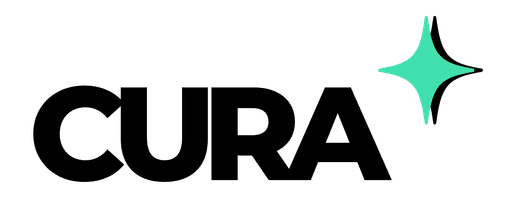Therapy SOAP Notes Template

Description:
This template leverages the SOAP (Subjective, Objective, Assessment, Plan) framework to document general therapy sessions, providing a structured yet flexible approach for therapists to record client interactions, observations, evaluations, and future steps. It is crafted for ongoing sessions to track progress, interventions, and treatment continuity, with detailed guidance to support comprehensive and professional note-taking.
Note:
This template is intended for regular therapy sessions post-intake. Adapt sections as needed based on the client’s needs, session focus, or therapeutic approach.
Date: [Record the date of the therapy session to maintain an accurate timeline within the client’s treatment record]
Client Name: [Enter the client’s full legal name for clear identification and consistency across documentation]
Therapist Name: [Enter the therapist’s full name to establish accountability and authorship of the session notes]
Session Number: [Note the session number in the sequence of therapy to contextualize progress and track the client’s therapeutic journey over time]
Subjective
Client’s Reported Experience: [Document the client’s self-reported feelings, symptoms, concerns, or events since the last session, using their own words where possible, to capture their subjective perspective and current emotional or psychological state.]
Significant Statements: [Highlight any key quotes or statements the client made that stand out, such as expressions of distress, hope, or insight, to emphasize their subjective narrative and provide context for the session’s focus.]
Objective
Observable Behaviors: [Record the client’s observable actions, appearance, or non-verbal cues during the session, such as posture, eye contact, or fidgeting, to provide an objective description of their presentation.]
Mental Status Observations: [Note clinical observations of the client’s mental state, including mood, affect, thought processes, or speech patterns, to offer a professional assessment of their psychological functioning during the session.]
Risk Indicators: [Detail any observable or reported signs of risk, such as suicidal ideation, self-harm behaviors, or agitation, including frequency and intensity, to ensure safety is objectively monitored.]
Assessment
Therapist’s Clinical Interpretation: [Summarize the therapist’s evaluation of the client’s current condition, integrating subjective and objective data, to provide a professional judgment on their progress, challenges, or emerging issues.]
Progress Toward Goals: [Assess how the client is advancing toward their established therapy goals, noting specific improvements, setbacks, or areas of stagnation, to evaluate the effectiveness of the treatment plan.]
Plan
Interventions Used: [Describe the therapeutic techniques or strategies applied during the session, such as CBT, psychoeducation, or relaxation exercises, including their purpose and duration if relevant, to document the actions taken to address the client’s needs.]
Homework or Tasks Assigned: [List any assignments or exercises given to the client for completion before the next session, including their intended purpose—like reinforcing skills or promoting reflection—to support ongoing progress outside therapy.]
Next Steps: [Outline the focus or goals for the upcoming session, including planned interventions or topics to explore, to ensure continuity and direction in the therapeutic process.]
Additional Notes
[Include any supplementary information not covered in the SOAP sections, such as logistical updates (e.g., scheduling changes), client questions, or external factors impacting the session, to capture a complete record of relevant details.]
Therapy SOAP Notes Template (Filled Mock Session)
Date: March 11, 2025
Client Name: Jane Doe
Therapist Name: Dr. Emily Carter, LPC
Session Number: 3
Subjective
Client’s Reported Experience: Jane reported feeling “a little better” this week, with fewer anxious thoughts (down from 7/10 to 5/10 intensity). She mentioned one panic attack triggered by a work deadline but said breathing exercises helped “a bit.” Sleep remains inconsistent at 5-6 hours.
Significant Statements: “I’m starting to notice when I spiral—it’s exhausting, but I caught myself once.” “Work still feels like it’s crushing me, though.”
Objective
Observable Behaviors: Jane sat upright with occasional shoulder shrugs, and less fidgeting than last session. She smiled faintly when discussing her daughter but tensed up talking about work.
Mental Status Observations: Mood appeared mildly anxious, affect congruent but brighter at times. Thought processes were logical, and speech was slightly rapid when describing work stress.
Risk Indicators: No signs of suicidal ideation or self-harm. Jane denied harm-related thoughts, reinforcing her focus on improvement.
Assessment
Therapist’s Clinical Interpretation: Jane shows early signs of self-awareness around anxiety triggers, likely due to breathing practice and initial CBT work. Work stress remains a primary driver of symptoms, with perfectionism as an underlying factor.
Progress Toward Goals: Moderate progress: panic attacks reduced to one this week (goal: fewer incidents), sleep slightly improved (goal: better quality), but work-life balance unchanged. Insight is emerging as a positive step.
Plan
Interventions Used: Introduced a CBT thought record for 15 minutes to track and challenge perfectionist thoughts about work, reinforcing diaphragmatic breathing with a 5-minute practice to solidify its use as a coping tool.
Homework or Tasks Assigned: Jane will complete a thought record for at least two anxiety-provoking work moments, noting triggers, thoughts, and alternative perspectives, to deepen self-reflection and challenge distortions.
Next Steps: The next session will review the thought record, explore perfectionism’s origins, and introduce a time management strategy to address work-life balance.
Additional Notes
Jane asked, “Will this get easier with practice?” I affirmed progress takes time but she’s on track. She rescheduled the next session to March 19 due to a work trip.
